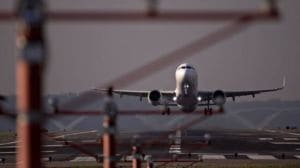9/11: Small choices,saved their lives
For a handful of people on Sept. 11,some seemingly inconsequential decisions made the difference between living and dying.
For a handful of people on September 11,2001,some seemingly inconsequential decisions — stepping out for a smoke,taking a different subway route,even waking up late because of a late night football game on TV — made the difference between living and dying.
Greer Epstein,an executive director at Morgan Stanley,never took breaks. She rarely left her office on the 67th floor of the World Trade Centre because she never had time.
But 20 minutes before 9 a.m.,one of her buddies called. “How about getting a cigarette?”
While riding down the elevator,she felt a jolt,but ignored it since the elevators had always acted strangely.
When she stepped outside to light up,she saw people frozen in place,their eyes fixed to the sky. As she stared at the fire and smoke billowing from a hole in the North Tower,she wondered: “How do they fix something like that?”
That’s when a plane flew through her office in the South Tower.
A cigarette break saved her life.
Epstein realised later that had it not been for that rare morning break,she could have lost everything.
“I never took a break before noon,” Epstein was quoted as saying by CNN.
“It was something that happened that day. And thank God it. I was safely out of the building when the plane hit. A fireball went through my office. Had I been sitting there,who knows what would’ve been?”
Today she tells colleagues not to let their lives revolve around their jobs.
“Now I tell people,’Don’t put it off. Take your vacation. Take your time with family.'”
Others,like Daniel Belardinelli,shrugged it off,chalking up their fate to randomness and blind luck.
Belardinelli’s uncle,William Cashman,had planned a trip to Yosemite National Park and invited him to come. Cashman used a friend’s frequent-flier miles for United Airlines Flight 93 from Newark,New Jersey,to San Francisco on 9/11.
A week before the trip,Belardinelli backed out,telling his uncle he had work obligations.
His uncle never made it to Yosemite. He died along with the crew and passengers of Flight 93 who fought back against the hijackers and crashed near Shanksville,Pennsylvania.
At first,Belardinelli wrestled with survivor’s guilt. But after months of grieving,he heeded his father-in-law’s advice: “You gotta live your life. Disasters have happened in the past.”
Rob Herzog believes that he is lucky to be alive now. By 8:45 a.m.,Herzog would normally be at Marsh and McLennan’s office on the 96th floor of the World Trade Centre’s North Tower,where he worked as a vice president of operations for the insurance brokerage company.
That Tuesday,on his way to work,he stopped at a post office near his Upper West Side apartment.
Then he took a local subway train southbound and tried to transfer to an express at the 59th Street station,as he normally would.
“I tried to switch to the express A train,” Herzog said. “It was so crowded,and I’m claustrophobic. I got back into the local train.”
He was running late.
By the time he arrived at the World Trade Center,a Boeing 767 had crashed into his office building.
“I missed it by 5 minutes,” Herzog said.
His company was located below Cantor Fitzgerald Securities,which lost 658 employees in the attack. Marsh & McLennan lost 295 staff members.
“I had tremendous survivor’s guilt,” Herzog said. “All I could think of when I woke up was I should be dead,especially when I went to 15 different memorial services.”
Photos


- 01
- 02
- 03
- 04
- 05





























